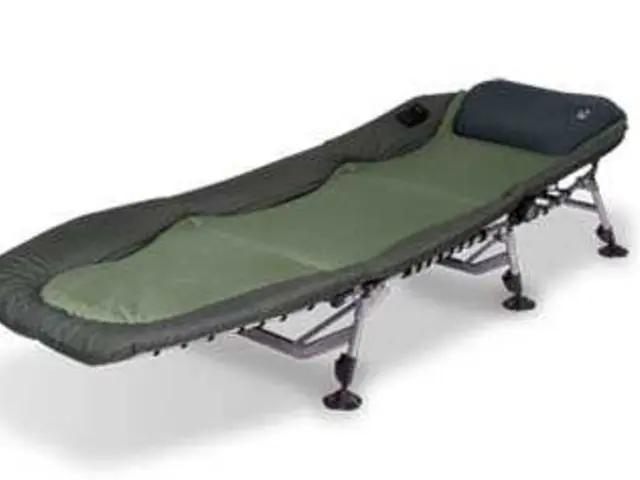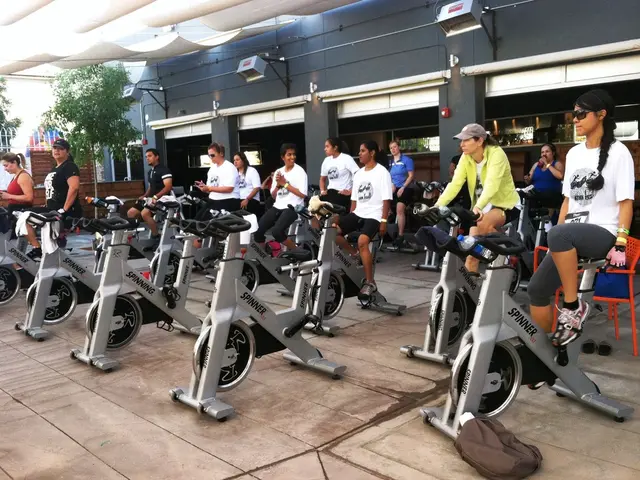Regular Exercise Equally Significant as Medication for Colon Cancer Recurrence Prevention
Colon Cancer Recurrence and Exercise: Is Exercise Better Than Drugs?
- According to current statistics, colon cancer is the third most prevalent cancer worldwide, accounting for roughly 10% of all cases.*
Exercise Program Shows Promise for Colon Cancer Recurrence Prevention
Recent research led by Canadian scientists has found that a structured exercise program may deliver more effective results than drug treatments in preventing colon cancer recurrence. This study, published in The New England Journal of Medicine (NEJM), reveals that patients who follow such a program following surgery and chemotherapy have a 28% lower risk of recurrence and a 37% lower risk of death from any cause compared to those given only health advice.*
Experts have suggested that exercise could potentially be more beneficial than drugs in preventing colon cancer recurrence. Dr. David Sebag-Montefiore, an oncology specialist at the University of Leeds in the United Kingdom, highlighted the appeal of a structured moderate-intensity exercise program, stating that it offers benefits without the known side effects of other treatments.
Exercise Program vs Health Advice for Cancer Prevention
The researchers recruited 889 participants for their study, which formed part of the Colon Health and Lifelong Exercise Change (CHALLENGE) trial. All participants had undergone surgery for stage 3 or high-risk stage 2 colon cancer, followed by adjuvant chemotherapy. They ranged in age from 19 to 84 years, and most had a body mass index (BMI) indicative of overweight or obesity, with none exercising for more than 150 minutes per week before the trial.
The study divided participants into two groups; the exercise group worked with a certified physical activity consultant for 3 years, aiming to achieve the equivalent of 3-4 brisk 45-60 minute walks a week. The health-education group received general health promotion materials.
Exercise Yields Improved Survival
At a median follow-up of 7.9 years, 93 people in the exercise group and 131 in the health-education group had experienced recurrence, a new primary cancer, or deaths. In total, 107 died from any cause - 41 in the exercise group and 66 in the health-education group. Patients in the exercise group did not lose weight, but demonstrated improved physical functioning and significantly longer disease-free survival, with an annual incidence of recurrence, a new primary cancer, or death of 3.7%, compared with 5.4% in the health-education group.
Could Exercise Be the Key to Improved Cancer Outcomes?
Lead author Kerry S. Courneya, PhD, from the University of Alberta in Edmonton, Canada, emphasized that the most significant finding of their study was the overall improvement in survival. Dr. Julie Gralow, Chief Medical Officer of the American Society of Clinical Oncology (ASCO), hinted that exercise might even be "better than a drug" for cancer patient outcomes due to a lack of related side effects, although she cautioned against abandoning drugs in favor of exercise. She clarified that her statement was intended to compare the magnitude of benefits achieved by standard therapies to what exercise accomplished in reducing recurrences and deaths, taking toxicity into account.
Julie Gralow also pointed out that while there are existing drugs that help prevent recurrence for certain colon cancer mutations, the benefit of exercise in colon cancer patients is not exclusive to these specific mutations. Courneya underscored the numerous benefits offered by their exercise program, such as improved fitness, reduced fatigue, and a lower risk of cardiovascular disease.*
Exercise Programs Cost-Effective
An exercise program might also prove more financially viable than medication, as the 'physical activity' intervention, which costs around 3,000 to 5,000 Canadian dollars, is significantly less expensive than some cancer drugs that can cost tens of thousands and even reach 100,000 dollars.
Support is Vital for Encouraging Exercise
Vicky Coyle, a U.K. researcher involved in the trial, stressed the importance of embedding exercise into treatment plans where appropriate. Dr. Joe Henson, an exercise specialist at the University of Leicester in the U.K., highlighted the need for support, as many people face barriers to engaging in regular exercise. He emphasized the importance of making exercise a regular part of cancer care and offering personalized support to patients.
Although Gralow emphasizes the importance of exercise to her own patients, she acknowledged that implementing exercise programs akin to the CHALLENGE study might be challenging, as it involves frequent visits to healthcare providers and may not be feasible for all patients or clinics.*
In conclusion, structured exercise programs have shown promise in reducing colon cancer recurrence and improving patient outcomes. While drug treatments remain essential for initial cancer management, exercise offers a beneficial adjunct to standard care, particularly in preventing recurrence and potentially reducing the risk of death from any cause. Ongoing research will help establish the full extent of its potential in cancer prevention and treatment.
- The study suggests that a structured exercise program might be more effective than drug treatments in preventing colon cancer recurrence, as shown in the research published in The New England Journal of Medicine (NEJM).
- Dr. David Sebag-Montefiore has highlighted the appeal of a structured, moderate-intensity exercise program due to its benefits without known side effects from other treatments.
- The CHALLENGE trial, which formed part of the study, divided participants into two groups: an exercise group and a health-education group.
- The exercise group, in collaboration with a certified physical activity consultant, aimed to achieve 3-4 brisk 45-60 minute walks a week over 3 years.
- At a median follow-up of 7.9 years, patients in the exercise group demonstrated improved physical functioning, significantly longer disease-free survival, and a lower incidence of recurrence, new primary cancer, or death compared to the health-education group.
- Exercise programs, such as the CHALLENGE trial's physical activity intervention, might be cost-effective compared to certain cancer drugs, which can cost tens of thousands to even 100,000 dollars.






